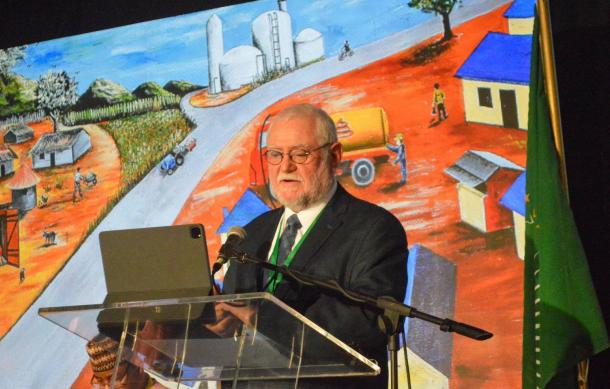
Africa has regressed in attaining commitments made in the 2008 Declaration on Accelerating the Achievement of Water and Sanitation Goals.
This is according to Namibia's Minister of Agriculture, Water, and Land Reform, Calle Schlettwein, who officially opened the 7th Africa Sanitation and Hygiene Conference at Swakopmund.
The five-day conference is a platform for technical and political dialogue with governments and stakeholders to address sanitation and hygiene challenges in Africa.
In 2008, the Heads of State and Government of the African Union made a declaration with the intent of giving more attention to sanitation and hygiene.
About 418 million people still lack a basic level of drinking water, 779 million lack basic sanitation services, and 208 million still practice open defecation in Africa.
"We are now worse off than we were when we made these commitments. And of course, climate change and COVID-19 played their roles in it. But the fact of the matter is, we are not better as per the promises and commitments; we are worse, and that must be recognised because you must admit and recognise the problem before you can look for strategies and interventions to solve it. The seventh AfricaSAn conference must seek to strengthen partnerships, drive knowledge exchange, and sustain efforts in advancing the progress of achieving these commitments that were previously made."
The minister, who is also the Chairperson of the Africa Water Facility, appealed to the over 500 delegates at the conference to think of different solutions.
"If you are in a crowded place and nature calls and you almost can't hold it anymore, do you dream of money? Or do you wish you could sit on the toilet and relieve yourself? I'm using these examples to show you that sanitation and water are the principles that we need to address, not money. Money must become the secondary problem. We need to think about what we can do differently to move the water sanitation and hygiene agenda forward. And we must do it differently because, since 2008, when we tried one concept that didn't work, we are worse off than we were then. So we must do something differently, something more effective."
Schlettwein noted that 90% of the impacts of climate change are water-related, including sanitation and hygiene.
This, he emphasised, is why the conference should help elevate and solve the climate crisis from both ends.





